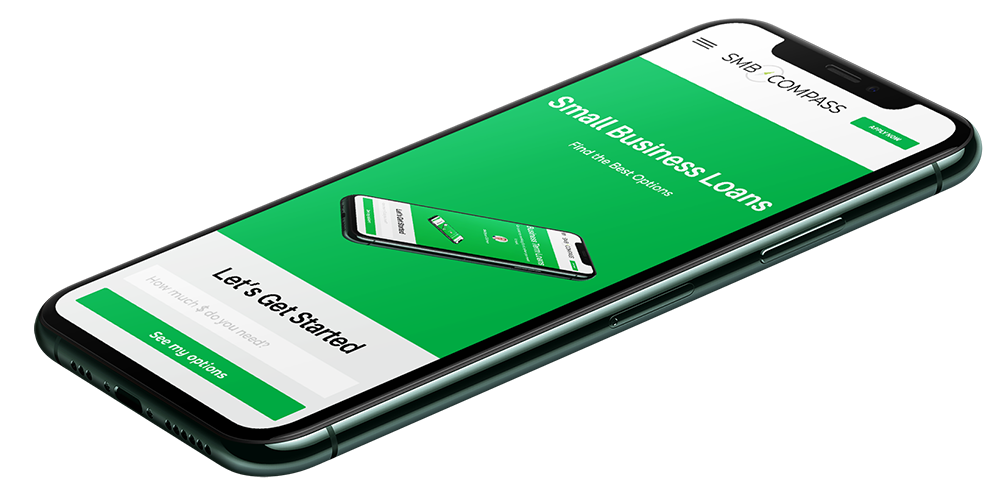
Georgia has held the title “Top 1 State for Business” for the past eight years. The Peach State earned a top score in various categories – one being the cost of doing business. Not only that, but being on top means that the state offers its citizens the highest quality of jobs, consequently making it one of the best places to live, work, and start a family.
Having one of the healthiest economies in the country, Georgia mostly thrives in its two major industries: agriculture and manufacturing. Aside from that, the state’s economic development also relies on healthcare, food services, retail, and construction industries.
Agribusiness Loans
The agricultural industry is one of the oldest and biggest sectors in Georgia. In fact, one in seven workers in Georgia work in the farming industry. Georgia is best known for being the largest producer of peanuts and pecans for crops. Georgia is also a major producer of broilers and eggs in the United States. Small business loans help agribusinesses in Georgia cover the expenses of growing and harvesting crops. With the cash flow boost, farmers can also weather the slow season or cover damages due to a natural calamity.
Manufacturing Businesses
The manufacturing industry in Georgia produces large volumes of textiles. In fact, Georgia is known to be the country’s top product producer. Manufacturing businesses deal with a lot of overhead expenses on any given month. Small business loans can cover rent and utilities to large machinery purchases.
Construction Businesses
Construction is also a significant contributor to Georgia’s economy. The financial projections show that the industry will generate a revenue of approximately $84.3 billion by 2024. Construction is a capital-intensive business. Aside from the overhead costs, you’ll also have to invest in heavy equipment since you won’t be able to provide services without it. With a small business loan, contractors can cover any business initiative, including bridging seasonal cash flow gaps, equipment purchases, payroll, insurance, etc.
Small Business Loans Georgia
Choosing the best financing option for Georgia based businesses is critical to a business’s success. Before applying for financing, be sure to fully understand what the loan entails. Here are the most common types of small business loan options in Georgia.
Business Lines of Credit
Business lines of credit are a type of business financing wherein businesses are given access to a set amount of capital. Once approved, the bank or online lender will open a credit line that business owners can tap on anytime they need an additional cash flow boost. They only have to draw the amount they need, pay it back (plus interest), and draw again if needed as long as they don’t exceed the set credit limit.
A business line of credit can be secured or unsecured. Secured lines of credit usually come with a higher credit limit and lower interest rates because of the collateral. On the other hand, unsecured lines of credit don’t require collateral. The absence of security makes the borrowing agreement high risk for lenders. They may set a lower credit limit and impose a high-interest rate on the financing to mitigate the risk.
Business Term Loans
Business lines of credit are a type of business financing wherein businesses are given access to a set amount of capital. Once approved, the bank or online lender will open a credit line that business owners can tap on anytime they need an additional cash flow boost. They only have to draw the amount they need, pay it back (plus interest), and draw again if needed as long as they don’t exceed the set credit limit.
A business line of credit can be secured or unsecured. Secured lines of credit usually come with a higher credit limit and lower interest rates because of the collateral. On the other hand, unsecured lines of credit don’t require collateral. The absence of security makes the borrowing agreement high risk for lenders. They may set a lower credit limit and impose a high-interest rate on the financing to mitigate the risk.
SBA Loans
SBA loans are loans backed by the Small Business Administration (SBA). The agency guarantees up to 85% of the total loan amount, which means that they will pay 85% of the loan amount in the event that the business defaults on the repayments. This guarantee incentivizes small business lenders to extend credit to businesses that usually wouldn’t qualify for a loan if not for the SBA guarantee.
With an SBA loan, businesses can get up to $5 million in funding, and the repayment period can be within 10 to 25 years, depending on the purpose. The goal is to help these businesses grow and expand by providing them the funding to invest in opportunities.
Equipment Financing
Equipment is one of the most important and expensive investments businesses need to make. Unfortunately, not all companies can afford to pay the equipment’s full price upfront. With equipment financing, they can get the necessary funding to purchase the equipment, so they won’t have to dig into their cash reserves and cause a strain on cash flow. Once approved, businesses can get up to 100% of the equipment’s total value financed.
With equipment loans, the equipment itself will act as the collateral for the loan. That means, in the event of a default, the lenders can seize the equipment to pay for the remaining loan balance.
Invoice Financing
Cash flow issues because of unpaid customer invoices are common among businesses that offer net term payments to their clients. Invoice financing helps free up capital tied up in the outstanding accounts receivables.
The financing company advances a portion (80% to 90%) of the total value of the invoices, so the companies won’t have to wait for 30, 60, or 90 days to get the payments. You’ll receive the remaining percentage (minus a fee) once your customers pay their invoices.
There’s generally no restriction on how you can use the money from invoice financing, so Georgia small business owners can use it to pay their employees, seize business opportunities, and improve cash flow.
Purchase Order Financing
Cash flow issues because of unpaid customer invoices are common among businesses that offer net term payments to their clients. Invoice financing helps free up capital tied up in the outstanding accounts receivables.
The financing company advances a portion (80% to 90%) of the total value of the invoices, so the companies won’t have to wait for 30, 60, or 90 days to get the payments. You’ll receive the remaining percentage (minus a fee) once your customers pay their invoices.
There’s generally no restriction on how you can use the money from invoice financing, so Georgia small business owners can use it to pay their employees, seize business opportunities, and improve cash flow.
Invoice Financing
Companies that need funding to fulfill a large customer order can apply for purchase order financing to cover the costs associated with the project. In some cases, the lenders can fund the total cost of the purchase order, while at other times, they may only fund a portion of it.
Typically, businesses that might use PO financing include those in the B2B and B2G industries. It could be distributors, resellers, wholesalers, and export companies. The business should also be selling assembled goods instead of raw materials.

Georgia Small Business Loans: How to Qualify for a Loan
Applying for financial assistance can be daunting, especially for first-time borrowers. Here are a few tips on preparing for a business loan application.
The required documentation will depend on the type of small business financing you’re applying for and the lender you’re working with. But, generally, here’s a list of what lenders usually ask for:
- Business plan
- Personal and business bank account
- Personal and business tax returns
- Articles of incorporation
- Business licenses
- Profit and loss statements
- Building lease
- Financial statements
A bank or credit union may require borrowers to apply personally, and you may need to wait for a few weeks to know whether you qualify or not.
Alternative or online lenders offer fully-automated loan applications that just take a few minutes to complete. Unlike banks, you’ll likely get an instant decision.
How Can You Use a Small Business Loan?
Georgia small business loans can be used for a variety of reasons. Here are some of the most common uses of business financing:
- Acquiring businesses
- Purchase equipment
- Buy office or store supplies
- Renovations
- Acquiring commercial real estate
- Bridging cash flow gaps
- Creating a cushion for emergency or unexpected expenses
- Additional working capital
- Refinancing existing debts
- Fund marketing initiatives
- Cover day-to-day expenses
Grants and Additional Resources for Small Businesses Located in Georgia
Amber Grants for Women
TheAmber Grant for Womenis the most popular grant program for women entrepreneurs. Each month, one women-owned business is granted $10,000 from Women’s Net. If you’ve been selected, you have a chance to receive the end-of-year $25,000 Amber Grant.
Georgia GrantWatch
Georgia GrantWatch is a hub for the latest small business grants in Georgia. It’s updated regularly and provides information about new grants.
You can also check out other federal grants and loan programs for a Georgia small business here.
There are Georgia-based financing options like the ACE loans, which provide financial assistance to minority business owners or underserved business owners.
Ready to apply for a Business Loan?

